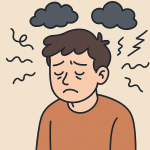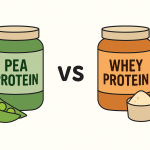Have joint pain, unexplained fatigue, or a facial rash ever disrupted your daily life? You might be dealing with lupus, a chronic autoimmune disease that affects millions around the world. Affecting up to 5 million people globally, lupus causes the immune system to mistakenly attack healthy tissues, leading to inflammation, pain, and potential organ damage. This guide covers everything adults need to know about lupus, including symptoms, nutrition, fitness, preventive care, mental health, and practical daily tips for living well with lupus.
Definition and Types
Lupus, particularly systemic lupus erythematosus (SLE), is an autoimmune disease where the immune system attacks the body’s own tissues, causing inflammation and damage to skin, joints, kidneys, heart, lungs, and brain. Other types include cutaneous lupus (skin-focused), drug-induced lupus, and neonatal lupus affecting newborns. Lupus symptoms often come in flares and remissions, varying in severity.
Causes and Risk Factors
The exact cause of lupus is unknown but is believed to involve genetics, environmental exposures (like sunlight and infections), hormonal factors, and immune system dysfunction. Women, especially during childbearing years, are more affected, with increased severity observed in certain ethnic groups.
Who Is Most Affected?
Approximately 3.5 to 5 million people worldwide live with lupus. It disproportionately affects women (about 9 times more than men), particularly those of African, Latin American, or Asian descent.
Nutrition Recommendations for Lupus
Anti-inflammatory Foods and Nutrients
A diet rich in fruits, vegetables, whole grains, lean proteins, and omega-3 fatty acids helps reduce inflammation. Foods like fatty fish (salmon, mackerel), flaxseeds, and walnuts provide omega-3s which may lower lupus activity. Fiber-rich foods support gut health and immunity.
Foods to Limit or Avoid
Limit saturated fats, cholesterol, refined sugars, salt, and processed foods which may exacerbate inflammation or contribute to cardiovascular risks. Avoid excessive alcohol and caffeine as these can worsen symptoms.
Importance of Calcium and Vitamin D
Steroid medications used in lupus can weaken bones, making calcium and vitamin D crucial for bone health. Sources include dairy products, leafy greens, fortified plant milks, and safe sun exposure or supplements as advised by a healthcare provider.
Fitness and Safe Exercise with Lupus
Benefits of Low-Impact Exercise
Exercise reduces joint stiffness, boosts cardiovascular health, controls weight, and lowers stress. Activities like walking, swimming, cycling, yoga, and Pilates improve flexibility and strength.
Exercise Types to Consider
Focus on aerobic endurance, strength training, and range-of-motion exercises adjusted to individual capacity. Consult healthcare professionals to tailor routines and avoid overexertion or injury.
Modifying Workouts During Flares
During symptom flare-ups, reduce intensity or temporarily switch to gentler activities. Rest is important, but maintaining some movement prevents stiffness and loss of muscle tone.
Preventive Care and Lifestyle Adjustments
Sun Protection and Avoiding Triggers
Sunlight triggers flares in many lupus patients. Use broad-spectrum SPF 50+ sunscreen, wear protective clothing, sunglasses, and avoid prolonged sun exposure. Smoking cessation and avoiding silica dust or infections aids disease control.
Regular Medical Monitoring
Routine check-ups to monitor disease activity, kidney function, and cardiovascular health enable timely adjustments in treatment and prevent complications.
Medication and Treatment Options
Treatment may include anti-inflammatories, corticosteroids, immunosuppressants, and newer biological therapies like anifrolumab. Tailored therapy reduces symptoms and enhances quality of life.
Mental Wellness and Support
Psychological Impact of Lupus
Chronic pain, fatigue, and unpredictability of lupus cause anxiety, depression, and cognitive issues in many patients. Sleep disturbances and emotional distress are common.
Coping Strategies and Resources
Mindfulness, meditation, counseling, therapy, and support groups help manage stress and emotional health. Digital apps and online resources provide easy access to mental health tools.
Building a Supportive Network
Family, friends, healthcare teams, and lupus communities provide essential emotional and practical support, empowering patients to manage their condition effectively.
Practical Daily Tips for Living with Lupus
Prioritize a balanced, anti-inflammatory diet rich in fruits, vegetables, and omega-3s.
Use sun protection diligently whenever outdoors.
Engage in gentle, regular exercise suited to your condition.
Maintain a symptom diary to track flares and triggers.
Seek support—mental health is as important as physical health.
Frequently Asked Questions
What is lupus?
An autoimmune disease causing inflammation and tissue damage in multiple organs.What causes lupus?
A mix of genetic, environmental, and hormonal factors triggers immune system malfunction.Is there a cure for lupus?
No cure currently, but treatment manages symptoms and prevents flares.Can diet affect lupus?
Yes, anti-inflammatory diets help reduce symptoms and improve well-being.Are there special exercise guidelines for lupus?
Low-impact aerobic and strengthening exercises are recommended with adjustments during flares.
Conclusion
Lupus is a complex autoimmune condition that requires a comprehensive approach including nutrition, exercise, preventive care, and mental wellness support. Early diagnosis, consistent treatment, and lifestyle modifications empower individuals to maintain a better quality of life. For further support, explore our other resources on autoimmune health, balanced diets, and stress management.
Take charge today by partnering with healthcare professionals and building a network that supports your lupus journey.








